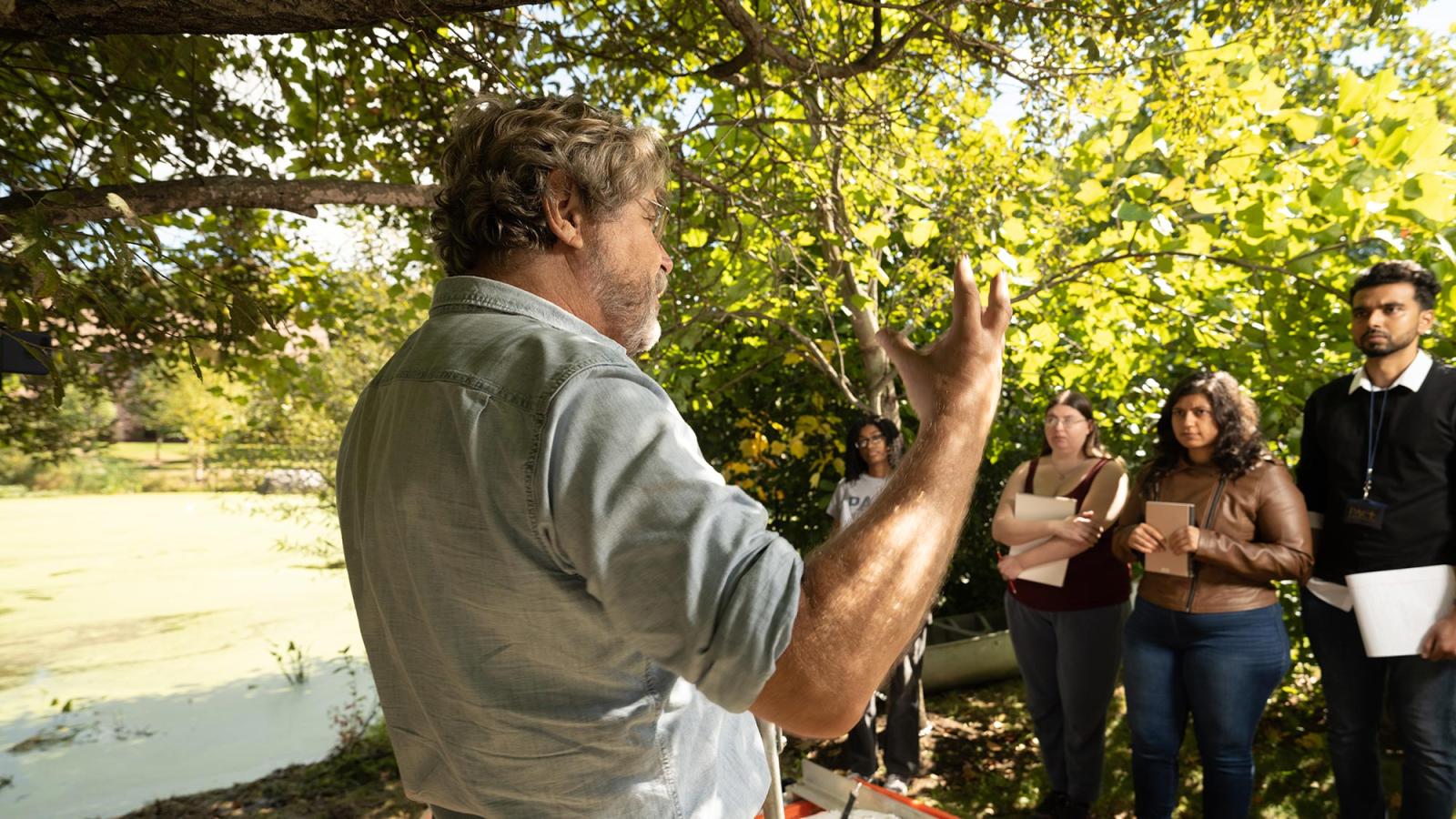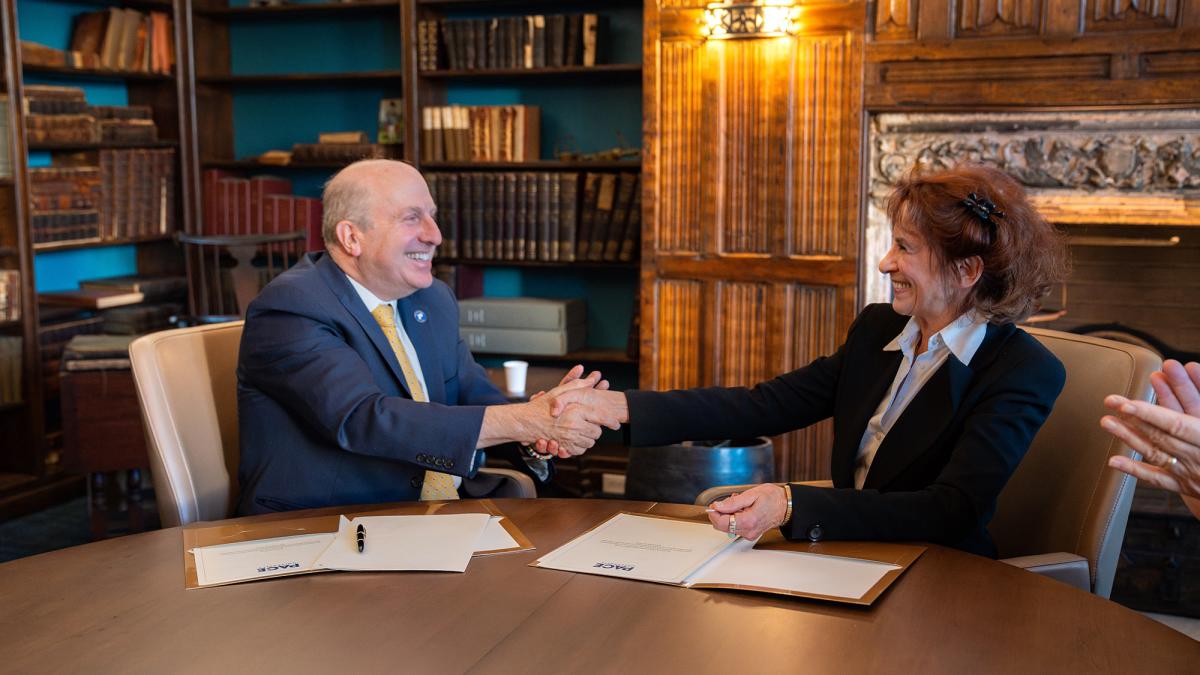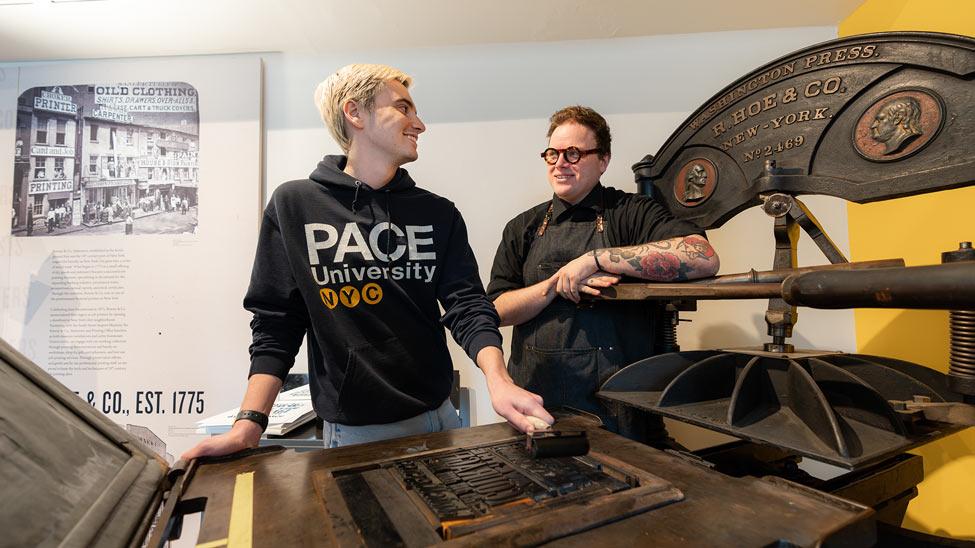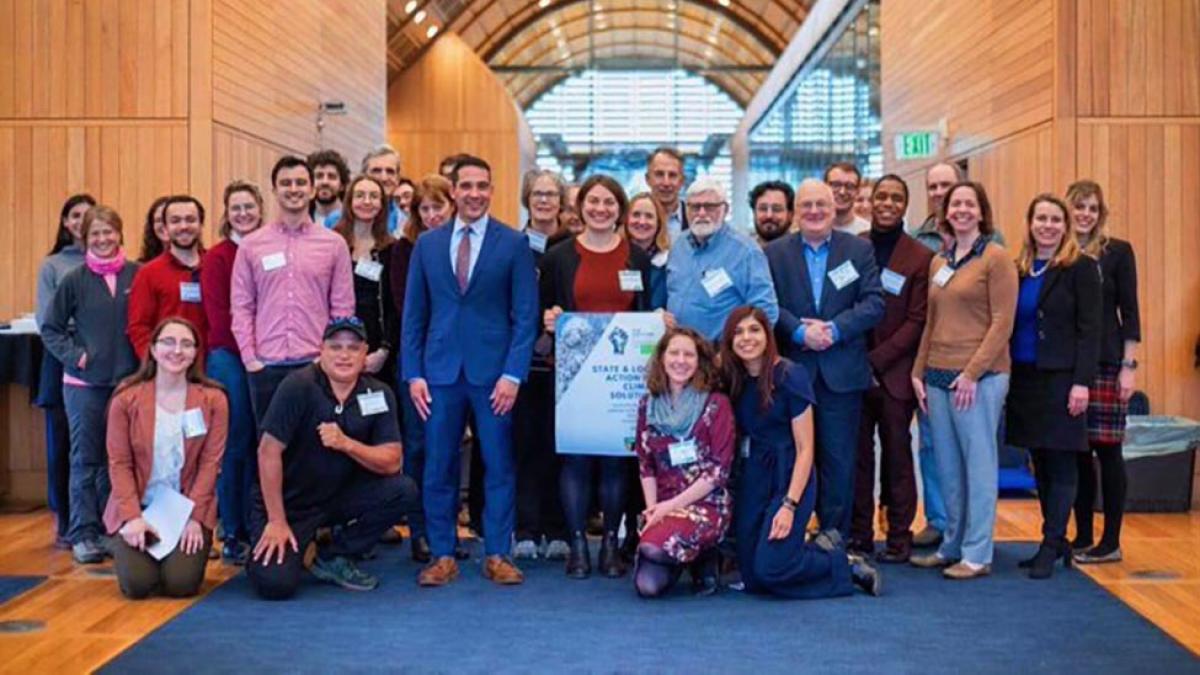
Notable Awards at Pace: Fall 2024

This past fall, Pace faculty members got to work; advancing research in their fields and bringing in awards highlighting our outstanding efforts in cybersecurity, the humanities, environmental and technology policy, and much more. Here are some highlights of Fall 2024’s major awards:
Interdisciplinary Scholarship and Environmental Justice
In December, Pace was awarded a $476,000 grant from the Mellon Foundation to support a three-year interdisciplinary initiative entitled Islands, Archipelagos, and Cultural Ecologies. Building on the University’s strengths in experiential learning and place-based education, the project will advance environmental justice and the environmental humanities at Pace, focusing on developing an institutional identity for Pace’s Lower Manhattan location as an island campus in New York City while connecting with other archipelagos in relationship with the United States.

This truly interdisciplinary initiative will be led by faculty from multiple departments across Dyson and Haub; including Erica Johnson, PhD, associate chairperson and professor of English; Emily Welty, PhD, department chairperson and associate professor of the Peace and Justice Studies program; Matthew Bolton, PhD, Political Science professor; Melanie DuPuis, PhD, Environmental Studies and Science emeritus professor; and Katrina Fischer Kuh, Haub Distinguished Professor of Environmental Law.
“This grant provides an extraordinary opportunity for Pace University to deepen its leadership in environmental justice and interdisciplinary scholarship,” said Pace University President Marvin Krislov. “The Mellon Foundation’s support will enable us to harness the collective expertise of our faculty and students, bridging the humanities and environmental sciences to address urgent local and global issues.”
A New Center at Seidenberg + Cybersecurity Career Training
Through a significant gift from New York City-based philanthropist and business leader Gale Epstein, Seidenberg recently launched The Gale Epstein Center for Technology, Policy and the Environment, dedicated to advancing technologies that ensure the public’s right to know the environmental conditions that can threaten their communities. For example, a key priority of the center is the development of a nationwide alert system to warn consumers of drinking water dangers before consumption— an initiative that will save millions of people from preventable illnesses, according to the center’s incoming executive director John Cronin.

“This transformative gift will allow the Seidenberg School to lead in developing innovative solutions at the intersection of technology, policy, and the environment,” says Li-Chiou Chen, PhD, interim dean of the Seidenberg, Chen said. “The Gale Epstein Center embodies the school’s commitment to advancing technologies that empower communities and protect the environment, ensuring a more sustainable future for all.”
The gift establishes the center’s future for decades to come.
Also at Seidenberg, funding from Consolidated Edison Company of New York, Inc. will support an experiential training program to prepare Pace students for careers in cybersecurity. Utilizing Pace’s newly launched Cyber Range, an interactive technology environment located on the Pleasantville Campus–and one of only a few in the region–students will prepare to fill roles with public and private sector employers and practice how to address and mitigate an orchestrated hack or other cyber threat.
“We’re very grateful to ConEdison for their generous support of cybersecurity education in the Seidenberg School focusing on critical infrastructure," says Seidenberg Clinical Assistant Professor of Information Technology Joe Acampora. "Through teaching students the necessary skills for protecting our energy systems, we are helping to safeguard essential services for all in the face of ever-evolving cyber threats.”
Leading the Way in Humanities-Based Experiential Learning
Pace has long been at the forefront of localized, experiential learning. Recently, this leadership was recognition by the National Endowment for the Humanities (NEH) through funding for the Ground Beneath our Feet (GBOF), a series of programs, courses, and a specialized digital mapping platform that taps into New York City’s rich history and culture and recognizes the location of Pace’s downtown campus on unceded Lenape land near the African Burial Ground–at the convergence of Chinatown, Civic Center, Financial District, and the Seaport.

In tandem with GBOF, a second NEH grant designed to support experiential humanities courses like those in the GBOF initiative will establish a new state-of-the-art Makerspace and Humanities Lab, which will allow students to engage in creative practices such as bookmaking and fabrication, with access to rare small-press publications and DIY works from New York City through the Pace Zine Library collection.
“We are a leader nationally in building what we call experiential humanities–where we empower students to learn by doing,” said Kelley Kreitz, PhD, director of experiential learning and associate professor of English. “This is a shift away from the historical model of universities of a one-way flow of information. Ultimately, we are preparing students to create the future in which they want to participate.”
Enhancing the Student Experience
Finally, the team over at Student Affairs, led by Vice President for Student Affairs and Dean for Students Jeffrey A. Barnett, PhD, was awarded a sizable multi-year grant from the Stavros Niarchos Foundation, which will enable Student Affairs to build programming to further foster a supportive and empowering student experience for all.
“We are thrilled to have been awarded a large multi-year grant from the Stavros Niarchos Foundation,” says Dean Barnett. “With their generous support, we will be able to expand our wellness grants, build out zen/meditation spaces across our campuses, sustain our successful programming and outreach that supports men's well-being, and expand the services and offerings of our LGBTQIA+ Centers. In addition, we will be able to increase the number of faculty, staff and student leaders trained in Mental Health First Aid.”
More from Pace Magazine
The days of John Gotti and The Godfather are long behind us, but organized crime has continued to evolve. A Pace student teams up with two faculty members to investigate.
Through a grant from the New York State Department of Education, SOE's Jennifer Pankowski and Seidenberg's Tom Schmidt are employing artificial intelligence solutions to potentially revolutionize the teacher training experience.
For nearly 25 years, Pace University's Elisabeth Haub School of Law has partnered with Yale University to create one of the most unique and impactful joint degree programs in the world.


